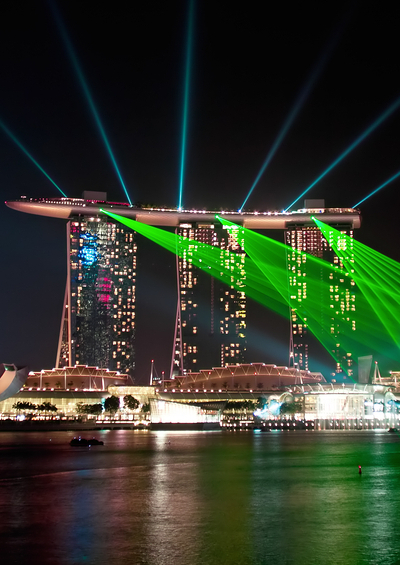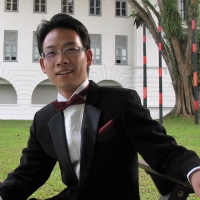Lee Kuan Yew’s Two Houses
Lee Kuan Yew’s legacy goes far beyond his house.
June 25, 2017

Singapore’s 38 Oxley Road was the former residential house of the late Lee Kuan Yew, the Southeast Asian small island nation’s founding father and its first Prime Minister.
In the house, Lee Kuan Yew and his wife Kwa Geok Choo raised three children. Lee Hsien Loong, the eldest son who is the current Prime Minister of Singapore, a daughter, Dr. Lee Wei Ling, and the youngest son Lee Hsien Yang.
The house and the three siblings are currently emerging publicly at the center of disputes since the passing of Lee Kuan Yew in 2015.
In a strongly-worded six-page statement titled “What Has Happened to Lee Kuan Yew’s Values? Which was jointly published on 14 June 2017 by Lee Wei Ling and Lee Hsien Yang (joint executors and trustees of Lee Kuan Yew’s old estate), the two siblings reiterated their father’s wish to demolish the house upon his death.
But their elder brother Prime Minister Lee Hsien Loong together with his wife Ho Ching, the CEO of Singapore Government-owned Temasek Holdings, had opposed the wish as “the preservation of the house would enhance his political capital.”
Family feud
More significantly, the two siblings further questioned the “character, conduct, motives and leadership” of Lee Hsien Loong as the national leader, and emphasized that “we have no confidence in Prime Minister Lee Hsien Loong and are worried about Singapore’s future.”
Moreover, the two siblings said that they were considering leaving Singapore, because they felt closely monitored and feared the use of state organs against them by their big brother.
Lee Hsien Loong has denied all allegations, especially the so-called “absurd” claim that he and his wife Ho Ching has political ambitions for their son Li Hongyi. The son subsequently made a public statement that he has “no interest in politics.”
However, both sides have been revealing more private stories and insider evidence to support their respective claims and to attack one another.
The political significance of this family feud for Singapore goes far beyond a “private family matter.”
Although the two siblings’ accusations may not be able to materially challenge Prime Minister Lee Hsien Loong’s grip on power, such severe criticisms from two closest family members will inevitably damage his reputation and popularity.
A political dynasty?
No matter if Prime Minister Lee really had the political intention to “establish a dynasty” as claimed by his sister or not, it will be very difficult for his children to enter Singapore’s politics in future.
Accusing Prime Minister Lee, his siblings also said that “Whilst our father built this nation upon meritocracy, Hsien Loong, whilst purporting to espouse these values, has spoken of a natural aristocracy.”
If without the designed “Lee dynasty” espousing a “natural aristocracy” in the future, it will probably be good news for the Republic of Singapore, nowadays a world-renowned modern and luxurious “house” built up by Lee Kuan Yew from almost nothing in 1965.
Notably, it was in his old home 38 Oxley Road, where Lee Kuan Yew and his comrades gathered secretly to discuss historical events including Singapore’s independence from Britain and subsequent separation from Malaysia.
Now, the hot arguments between the three Lee siblings are still ongoing, especially about how Lee Kuan Yew’s last will was prepared.
Lee Hsien Loong questions why the demolition clause was included in the seventh and final will, when it was not in the fifth and sixth wills, while his two siblings insist the last will is “final and legally binding.”
Prime Minister Lee has apologized to Singaporeans for harm done by the dispute and agreed to address all questioned in the coming Parliament sessions on July 3.
A successful legacy
Lee Kuan Yew’s real will may be debatable, but one thing should be absolutely certain: Lee Kuan Yew must hope the “house of Singapore” he established could continue to survive and thrive.
As his children Lee Wei Ling and Lee Hsien Yang said “much more important to him was that what he had done should last.”
In only a few decades, Singapore has successfully transformed from a third-world city-state into an international trading and financial hub, housing more than 5 million residents with high living standards.
And, the Government of Singapore has been crowned as one of the least corrupt and most efficient administrations around the world.
Those incredible achievements should be largely credited to Singapore’s good governance institutionalized by Lee Kuan Yew, based on values of meritocracy, honesty, integrity and the rule of law.
Lee Kuan Yew’s legacy is far beyond his personal house, and the best way to inherit his authority and credibility is probably to uphold and exercise his core values.
Takeaways
Singapore’s 38 Oxley Road was the house of Lee Kuan Yew, the nation’s founding father and first Prime Minister.
PM Lee Hsien Loong’s siblings questioned his “character, conduct, motives and leadership” as Singapore’s leader.
No matter if PM Lee wants to establish a dynasty, his children will find it hard to enter Singapore’s politics.
In only a few decades, Singapore has transformed from a third-world city-state into an international trading hub.
Singapore’s government has been crowned as one of the world’s least corrupt and most efficient administrations.
